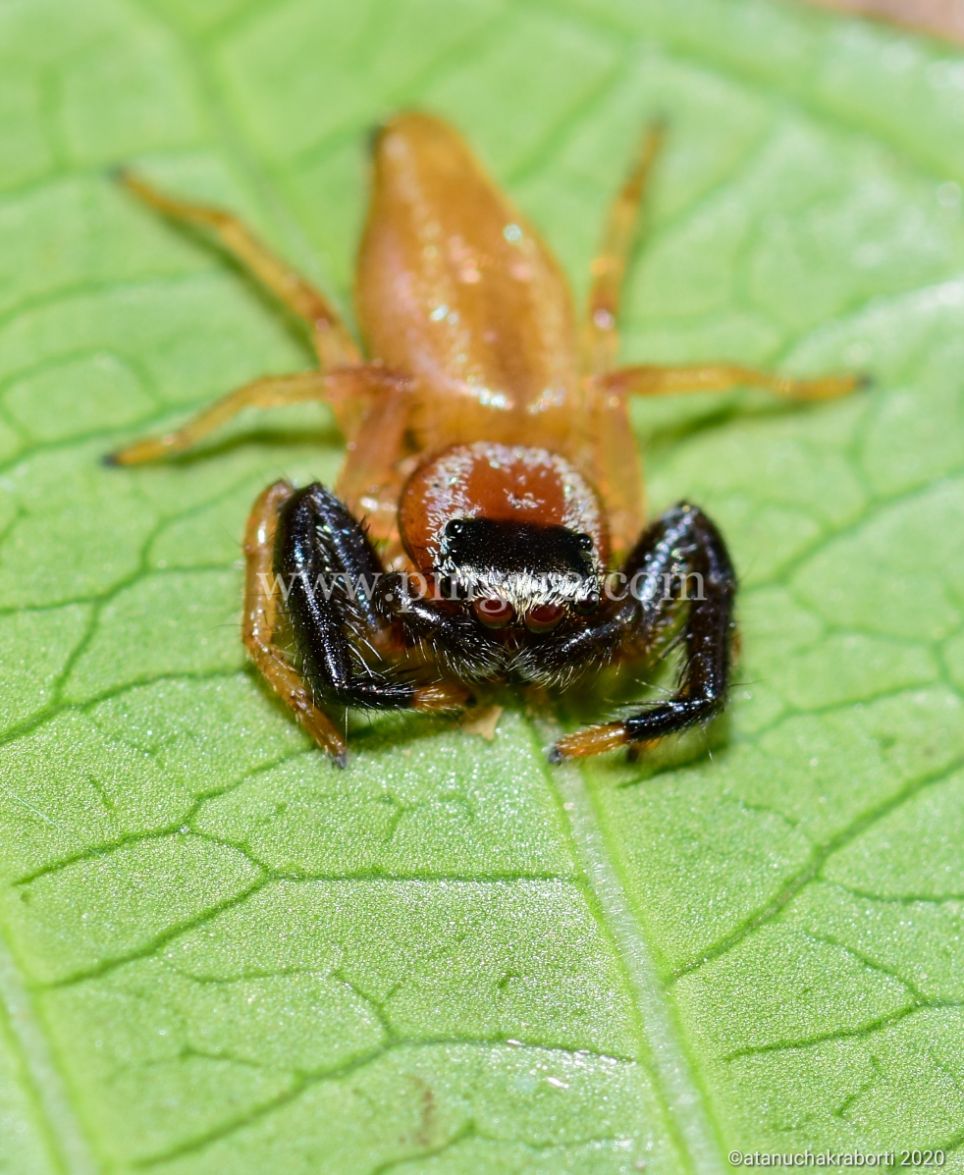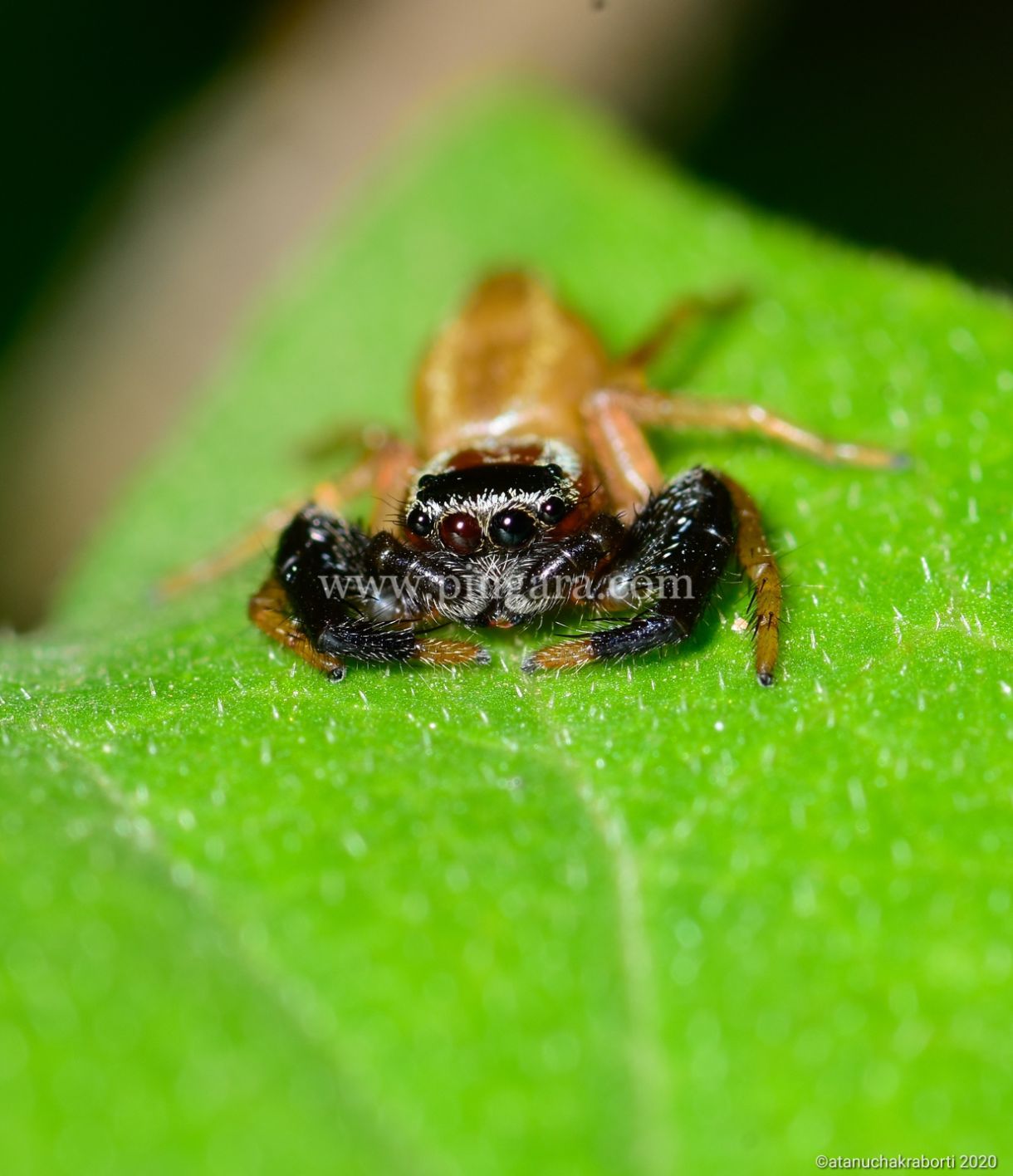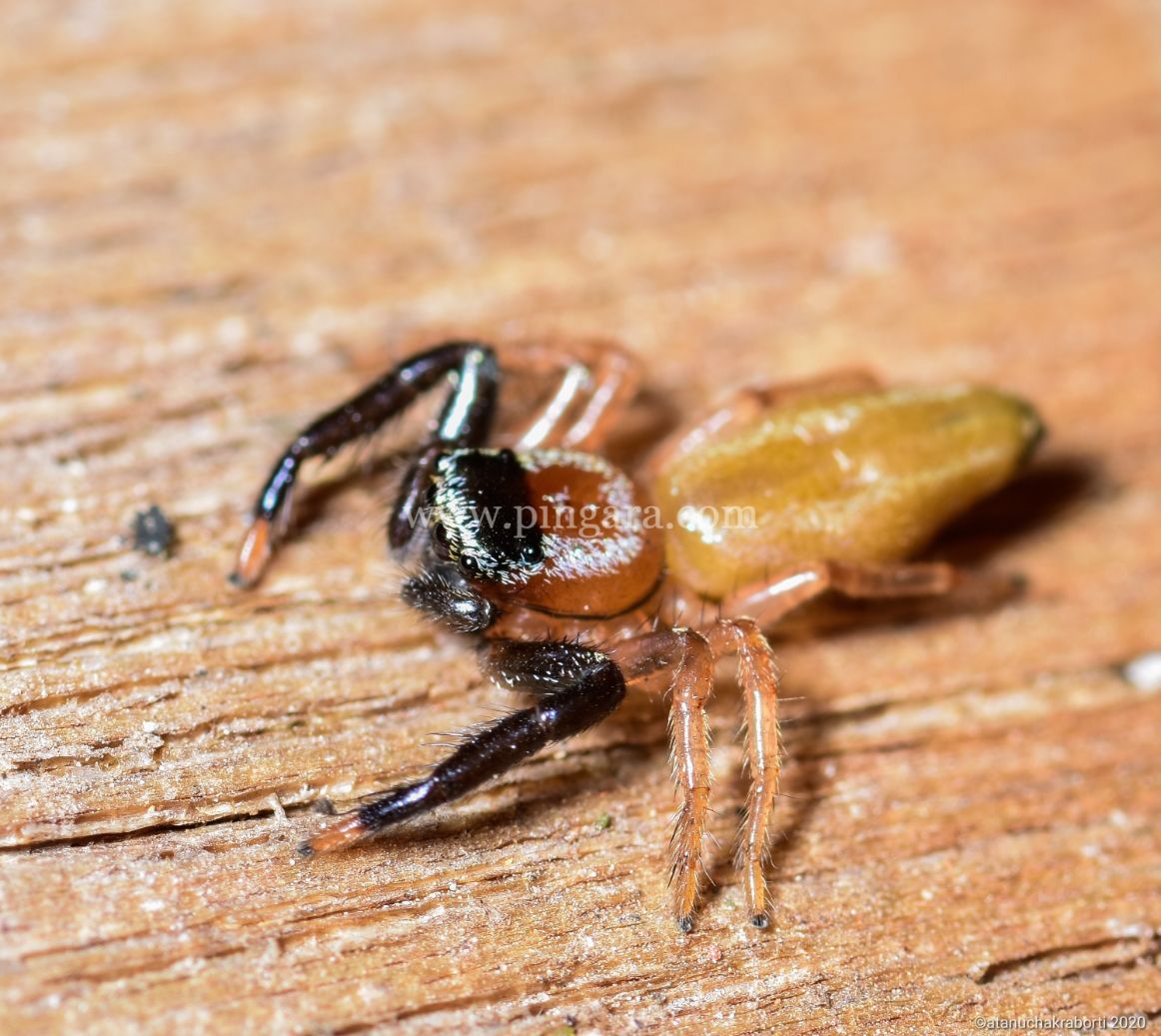Mangalore: Researchers based in Mumbai, Northeast India and USA remotely collaborated to report a new jumping spider from India, in spite of extensive lockdowns prevalent across the globe, owing to the ongoing Covid-19 pandemic.
 The species Thiania cf. subopressa was recently reported in a peer-reviewed scientific paper published in renowned international science journal 'Peckhamia' - the only science journal in the world dedicated solely to the study of jumping spiders, and which publishes novel and interesting research pertaining to these amazing arachnids. The species was first observed and photographed by Mr. Atanu Chakraborty, Asst. Conservator of Forests for Government of India, Tripura, in his urban wildlife garden, who collaborated on the paper with Mumbai based naturalist and arachnologist Javed Ahmed, and US based arachnologist Dr. David E Hill, who specializes in the study of jumping spiders.
The species Thiania cf. subopressa was recently reported in a peer-reviewed scientific paper published in renowned international science journal 'Peckhamia' - the only science journal in the world dedicated solely to the study of jumping spiders, and which publishes novel and interesting research pertaining to these amazing arachnids. The species was first observed and photographed by Mr. Atanu Chakraborty, Asst. Conservator of Forests for Government of India, Tripura, in his urban wildlife garden, who collaborated on the paper with Mumbai based naturalist and arachnologist Javed Ahmed, and US based arachnologist Dr. David E Hill, who specializes in the study of jumping spiders.
The discovery is significant because it was made, not inside of a forest, but in an urban wildlife garden maintained by one of the authors involved in the discovery.
 The phenomenon of urban wildlife, as a direct result of an ever growing human population and rapid urbanization, is on the rise globally with several species ranging from giant tropical butterflies and endangered falcons, to opportunistic leopards and mountain lions (puma) having long since taken up residence in and around our cities.
The phenomenon of urban wildlife, as a direct result of an ever growing human population and rapid urbanization, is on the rise globally with several species ranging from giant tropical butterflies and endangered falcons, to opportunistic leopards and mountain lions (puma) having long since taken up residence in and around our cities.
And yet, urban green spaces remain some of the most neglected habitats when it comes to biodiversity conservation, in spite of playing increasingly important roles in the conservation of species, particularly terrestrial invertebrates which are globally threatened, and in a day and age when 'global climate change' and 'species extinction' are household terms.
 Mangalore based surgeon, Dr. Krishna Mohan, who doubles up as a very proficient naturalist and wildlife researcher, besides also being a highly skilled wildlife photographer, and who has previously collaborated with arachnologist Javed Ahmed on some of the country's most significant wildlife discoveries, including the discovery of rare jumping spiders such as Portia albimana, Brettus cingulatus, and Neobrettus, among others, states, "India is a treasure trove of biodiversity which still remains largely undocumented, and the vast majority of spiders in the country are either poorly studied, or simply not known to science. We're losing green spaces at an alarming rate, and it's imperative that we endeavor to document and report as much of our biodiversity as we possibly can, before these habitats and the organisms they contain are inevitably lost forever to urban development, as the human population across the world continues to grow at an exponential rate.”
Mangalore based surgeon, Dr. Krishna Mohan, who doubles up as a very proficient naturalist and wildlife researcher, besides also being a highly skilled wildlife photographer, and who has previously collaborated with arachnologist Javed Ahmed on some of the country's most significant wildlife discoveries, including the discovery of rare jumping spiders such as Portia albimana, Brettus cingulatus, and Neobrettus, among others, states, "India is a treasure trove of biodiversity which still remains largely undocumented, and the vast majority of spiders in the country are either poorly studied, or simply not known to science. We're losing green spaces at an alarming rate, and it's imperative that we endeavor to document and report as much of our biodiversity as we possibly can, before these habitats and the organisms they contain are inevitably lost forever to urban development, as the human population across the world continues to grow at an exponential rate.”
"While the conservation of protected areas such as forests should be rightly prioritized, the importance of urban green spaces, in the form of gardens, parks and even agricultural plantations to biodiversity conservation should not be overlooked, or underestimated." he adds.
Link to paper: Link: http://peckhamia.com/peckhamia/PECKHAMIA_214.1.pdf
